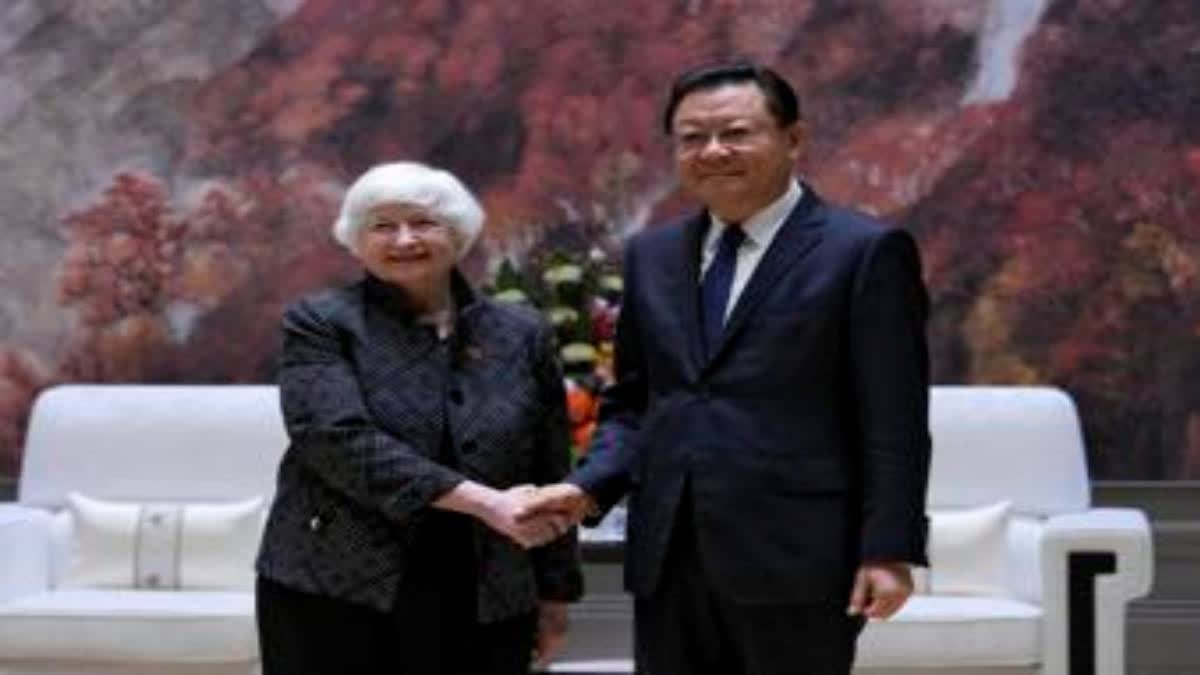Guangzhou (China): U.S. Treasury Secretary Janet Yellen called on China on Friday to address manufacturing overcapacity that she said risks causing global economic dislocation, and to create a level playing field for American companies and workers.
Starting a five-day visit in one of China's major industrial and export hubs, she raised what the U.S. considers to be unfair Chinese trade practices in talks with senior Chinese officials.
"The United States seeks a healthy economic relationship with China that benefits both sides," she said ahead of a meeting with Chinese Vice Premier He Lifeng in the southern city of Guangzhou. "But a healthy relationship must provide a level playing field for firms and workers in both countries."
Earlier, she said at an an event hosted by the American Chamber of Commerce in China that there are "Chinese practices that are tilting the playing field away from American workers and firms."
He didn't get into specifics in his remarks before the media but said that both sides "need to properly respond to key concerns of the other side."
High on Yellen's list is the overcapacity issue. Chinese government subsidies and other policy support have encouraged solar panel and EV makers in China to invest in factories, building far more production capacity than the domestic market can absorb.
The massive scale of production has driven down costs and ignited price wars for green technologies, a boon for consumers and efforts to reduce global dependence on fossil fuels. But Western governments fear that that capacity will flood their markets with low-priced exports, threatening American and European jobs.
Yellen, the first Cabinet-level official to visit China since President Joe Biden met Chinese leader Xi Jinping last November, told the vice premier and the governor of Guangdong province in separate meetings that it is important for the U.S. and China to have open and direct communication on areas of disagreement.
"This includes the issue of China's industrial overcapacity, which the United States and other countries are concerned can cause global spillovers," she said during her meeting with the governor.
Guangzhou is the provincial capital of Guangdong, a Chinese manufacturing and export hub that is home to telecom giant Huawei and BYD, China's largest EV maker. Huawei has been hit hard by U.S. restrictions on semiconductor exports to China and is at the vanguard of Chinese efforts to become self-sufficient and a leader in technology.
Yellen, who will also visit Beijing on her trip, met with both U.S. and European and Japanese business representatives before her meeting with He.
"I've heard from many American business executives that operating in China can be challenging," she said at the American Chamber event in an auditorium at a marbled convention center in the Baiyun District of Guangzhou.
